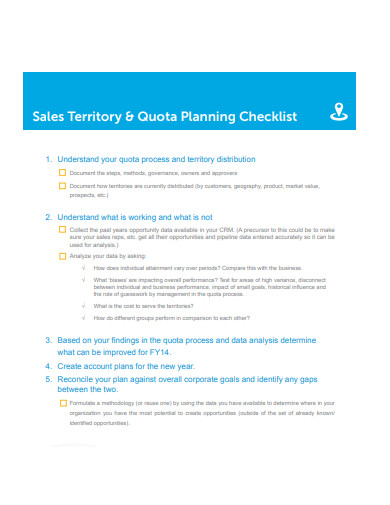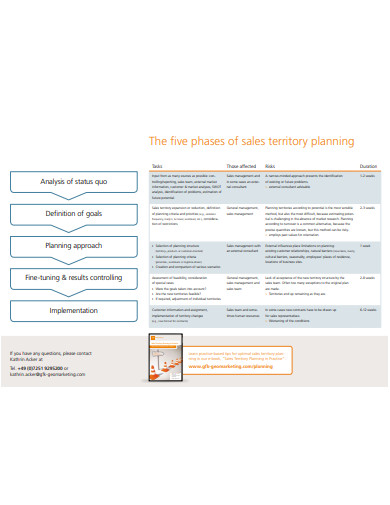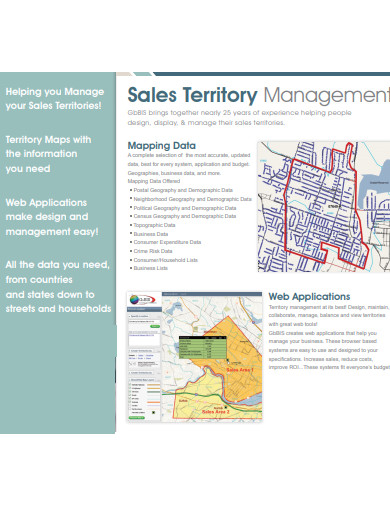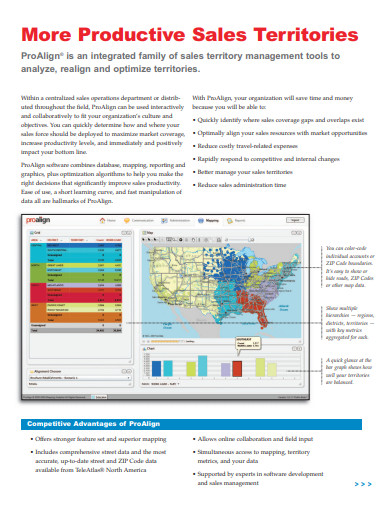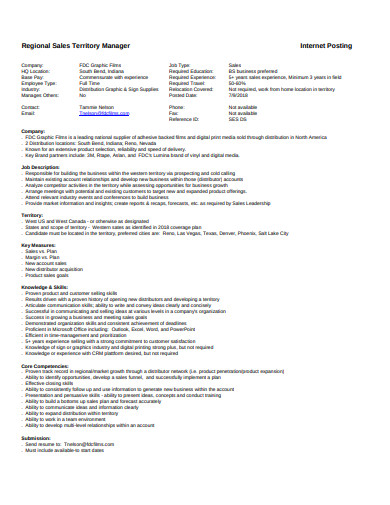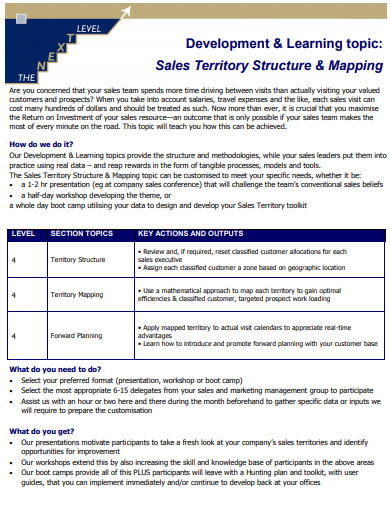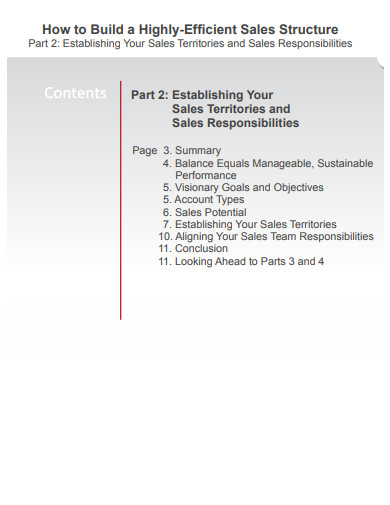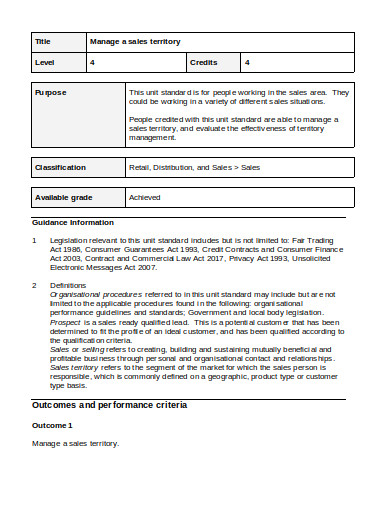10+ Sales Territory Examples to Download
Once a company’s market has grown large enough, it becomes necessary to divide everything into different territories. These not only make things easier for the actual salespeople with their day-to-day activities, but it’s also much easier for management to keep track of things. For those who wish to learn more about sales territory plans and find the best plan templates for themselves, all you need to do is scroll on!
10+ Sales Territory Examples
1. Sales Territory and Quota Planning Checklist
2. Five Phases of Sales Territory Planning
3. Sales Territory Management
4. Agile and Adaptive Sales Territory Alignment
5. Designing Sales Territories Example
6. Optimising Sales Territories Designing
7. Sales Territory Management Tools
8. Regional Sales Territory Manager
9. Sales Territory Structure and Mapping
10. Establishing Sales Territories and Sales Responsibilities
11. Manage a Sales Territory
What Is a Sales Territory Plan?
A sales territory plan is what companies use to help guide them as they create and manage sales territories. There are also those that refer to this as a territory management plan. With a plan in place, territories become easier to define according to their sales potential, geographical market history, and various other factors. Due to its importance to sales companies, many often take advantage of items like a free sales territory plan template, a territory sales plan template, and many other territory sales plan template examples.
How to Create Your Own Sales Territory Plan
When it comes to building a sales territory plan, you have several options before you. One, you can always get a sales territory plan template free of charge, such as the ones in our list above. Two, you can follow the simple steps detailed below. Regardless of what you choose, the following information should still prove quite interesting and useful:
Step 1: Define Your Market
The point of this step is to split your customers into numerous segments. You can split them according to their location, their purchasing habits, their jobs, and any other categories relevant to market segmentation. In doing so, you make it easier to determine specific sales territories and what needs to be done within them.
Step 2: Use a SWOT Analysis
To further your efforts in determining sales territories and your plans for it, you need to take a closer look at your own company. With a SWOT analysis, you can focus on learning your strengths and your weaknesses. From there, you can assess what opportunities you have, along with what threats you face in the form of competitors.
Step 3: Develop Specific Strategies
There are many things to ask yourself when developing your strategies. You must consider how you plan on going through your present accounts and how to leverage your successes. There’s also lead generation. You need to ask yourself regarding where you need to improve and what your team needs to do so that you can all meet your objectives. Through questions like that, you can develop the right strategies for yourself.
Step 4: Track Your Results
The last part of your sales territory plan would be the means in which you intend to track your results. You will need to give this some time before evaluating anything. Come up with a reasonable timeline before checking for things like sales disparities between your various territories, an increase or decrease in sales in certain regions, and more.
FAQs
What are the common objectives of a sales territory?
First, there’s the need to simplify the process for salespeople. With a territory, they can be held responsible for the progress of their results. There’s also the objective of completing the sales process without too many delays or any unnecessary expenses.
What factors determine the allocation of sales territories?
One factor is the nature of the product being sold. Then there’s the basis of how much demand there is for the product. The demand can be so great sometimes that it would take several salespeople and even multiple territories just to make things happen. There are also advertising and promotional activities to consider in allocating sales territories.
What are the different types of sales territory shapes?
When it comes to types of sales territory shapes, you’ve four variants to concern yourself with. One is the wedge shape. Another is the circle shape. Then you’ve got the hopscotch shape and the cloverleaf shape. With these, you can best determine how to divide sales territories on your own.
Multiple territories for sales companies mean big business. To help handle that big business, a plan of action is practically a requirement. These sales territory plans may seem daunting, but without it, everything could crumble in a flash. Now that you know more about this, what will you do now? Regardless of what your next move is, be sure to make good use of your new-found knowledge and act with clarity today!



